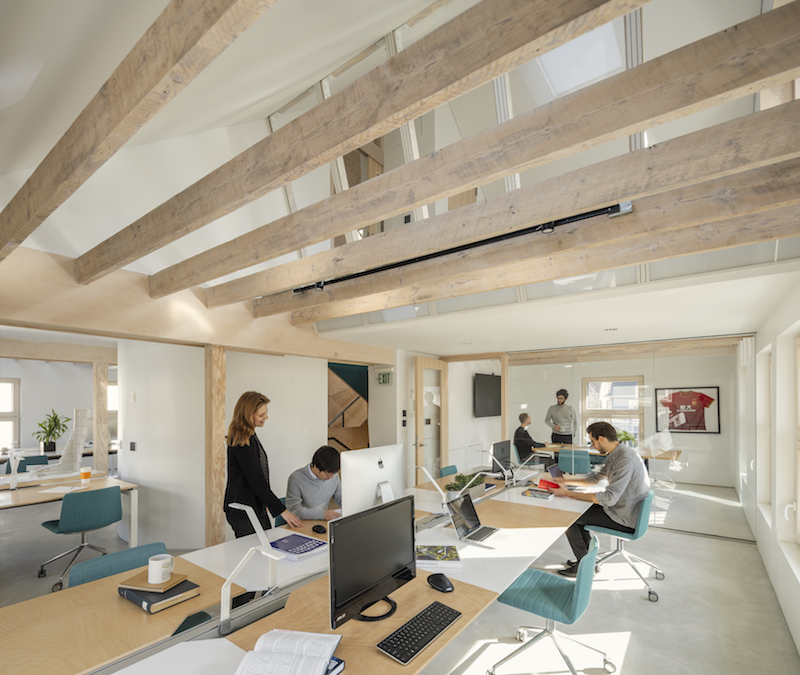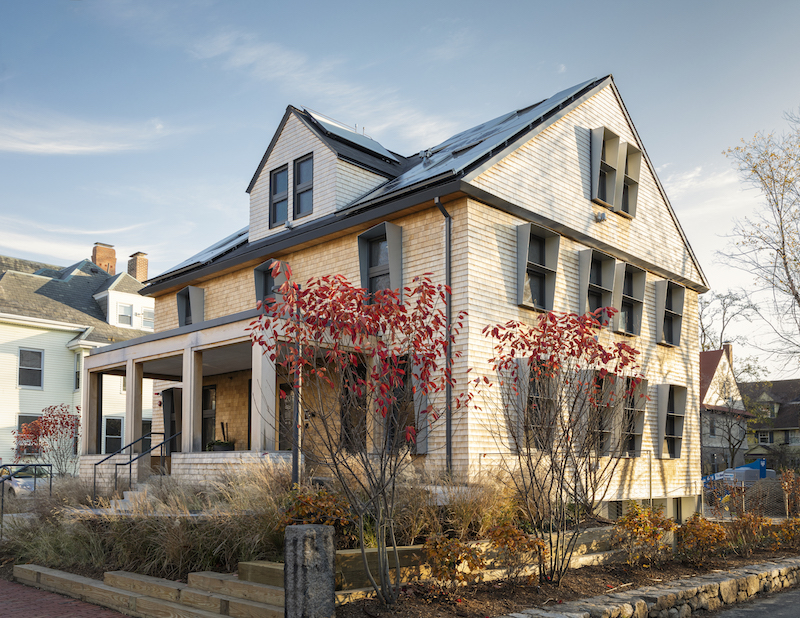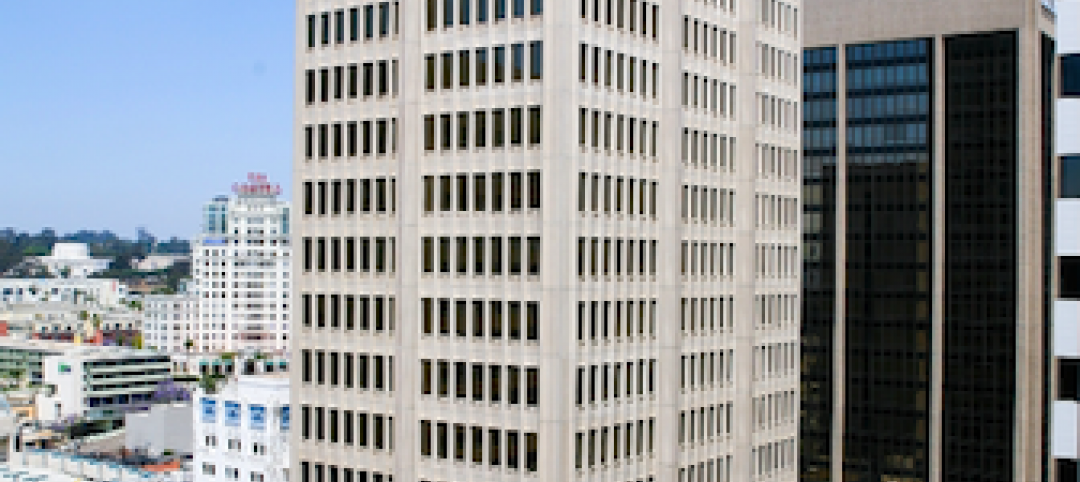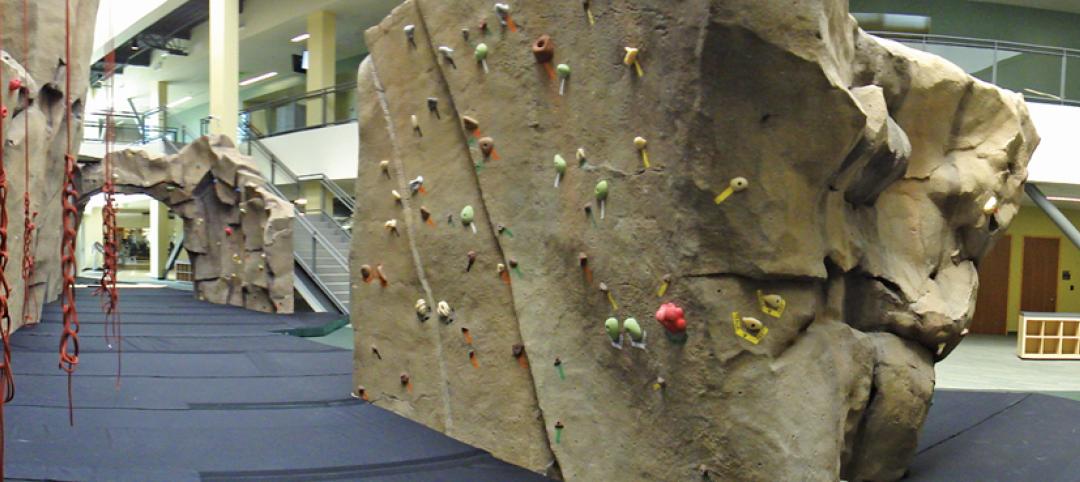The Harvard Center for Green Buildings and Cities (CGBC) has completed the retrofitting of its 4,600-sf headquarters in Cambridge, Mass., built in 1924, into a living laboratory called HouseZero, whose design is driven by ambitious performance targets that include nearly zero energy use for heating and cooling, zero electrical lighting during the day, operating with 100% natural ventilation, and producing zero carbon emissions.
Snohetta was this project’s chief architect, and Skanska Teknikk Norway its lead energy engineer.
A prototype, HouseZero has been set up to address a chronic problem within the built environment: inefficient existing structures. The building inventory in the U.S. is estimated to account for 40% of the country’s energy consumption, with 25% of that usage attributed to housing alone. The annual costs of residential energy consumption are enormous: $230 billion for heating, cooling and powering the nation’s 113.6 million households.
CGBC, at the Harvard Graduate School of Design, has embedded hundreds of sensors connected by several miles of wiring within each component of HouseZero, from which it will draw data points that inform its researchers about the building’s behaviors. These data will be the basis of computational simulations for fuel research that could help the Center develop new systems and algorithms that promote energy efficiency, health, and sustainability.
The goal of HouseZero is to create a blueprint for reducing energy demands and increasing cost savings for property owners. “HouseZero challenged us to rethink the conventions of building design and operation to enhance lifelong efficiency and quality of life for occupants,” says Ali Malkawi, founding director of CGBC, and creator and leader of the HouseZero project.
An example of this rethinking is natural ventilation that is controlled by a window actuation system that employs sophisticated software and sensors arrays to automatically open and close windows to maintain a quality internal environment throughout the year. The building itself will strive for best possible comfort. However, Malkawi notes, a window can always be opened manually to ensure individual comfort.
HouseZero’s third floor features a flexible, highly-controlled and monitored experimental space—dubbed the LiveLab—that’s hardwired to the building’s energy exchange system. The space will allow for the testing, swapping, and optimization of new technologies. An immediate goal is to beta test new technologies that can eventually replace the building’s ground source heat pump for peak conditions.

HouseZero is naturally ventilated, and designed to use only natural lighting during the daytime hours. Image: Michael Grimm
The building will also be used to research how structures connect with and respond to its natural environment. Its envelope and materials were designed to interact with the seasons and the exterior environment. The building, according to CGBC, will adjust itself to reach thermal comfort for its occupants.
HouseZero will achieve zero net energy with the help of a rooftop PV array that provides renewable electrical energy for the heat pump as well as for energy required by user equipment. A battery system is employed for night time use and low-sun conditions.
To meet proposed emission cuts of the Paris agreement, HouseZero will offset the hidden emissions generated throughout the building’s anticipated 60-year life cycle, from the fabrication and transport of building materials and construction processes, to maintenance and decommissioning.
The rest of the renovation team on this project included Columbia Construction (CM), Silman Associates (SE), BR+A (MEP/FP/lighting), Bristol Engineering (CE), WindowMaster (BAS/Controls/Natural Ventilation systems), Brekke & Strand Akustikk (acoustrics), Jensen Hughes (code and accessibility consultant), Haley & Aldrich (geotechnical engineer), Syska Hennessy (vertical transportation), Kalin Associates (specifications), Siemens Building Technologies (security systems), Solect Energy (photovoltaic systems), Reed Hilderbrand (landscape architect), Harvard Planning and Project Management; CSL Consulting (project management), and Harvard Graduate School of Design (operations support).
Related Stories
| Oct 11, 2010
Rhode Island is the first state to adopt IGCC
Rhode Island is the first state to adopt the International Green Construction Code (IGCC). The Rhode Island Green Buildings Act identifies the IGCC as an equivalent standard in compliance with requirements that all public agency major facility projects be designed and constructed as green buildings. The Rules and Regulations to implement the Act take effect in October 2010.
| Oct 8, 2010
Union Bank’S San Diego HQ awarded LEED Gold
Union Bank’s San Diego headquarters building located at 530 B Street has been awarded LEED Gold certification from the Green Building Certification Institute under the standards established by the U.S. Green Building Council. Gold status was awarded to six buildings across the United States in the most recent certification and Union Bank’s San Diego headquarters building is one of only two in California.
| Oct 6, 2010
Windows Keep Green Goals in View
The DOE's National Renewable Energy Laboratory has almost 600 window openings, and yet it's targeting LEED Platinum, net-zero energy use, and 50% improvement over ASHRAE 90.1. How the window ‘problem’ is part of the solution.
| Oct 6, 2010
From grocery store to culinary school
A former West Philadelphia supermarket is moving up the food chain, transitioning from grocery store to the Center for Culinary Enterprise, a business culinary training school.
| Sep 30, 2010
Luxury hotels lead industry in green accommodations
Results from the American Hotel & Lodging Association’s 2010 Lodging Survey showed that luxury and upper-upscale hotels are most likely to feature green amenities and earn green certifications. Results were tallied from 8,800 respondents, for a very respectable 18% response rate. Questions focused on 14 green-related categories, including allergy-free rooms, water-saving programs, energy management systems, recycling programs, green certification, and green renovation.
| Sep 16, 2010
Green recreation/wellness center targets physical, environmental health
The 151,000-sf recreation and wellness center at California State University’s Sacramento campus, called the WELL (for “wellness, education, leisure, lifestyle”), has a fitness center, café, indoor track, gymnasium, racquetball courts, educational and counseling space, the largest rock climbing wall in the CSU system.
| Sep 13, 2010
Second Time Around
A Building Team preserves the historic facade of a Broadway theater en route to creating the first green playhouse on the Great White Way.
| Sep 13, 2010
World's busiest land port also to be its greenest
A larger, more efficient, and supergreen border crossing facility is planned for the San Ysidro (Calif.) Port of Entry to better handle the more than 100,000 people who cross the U.S.-Mexico border there each day.
| Sep 13, 2010
'A Model for the Entire Industry'
How a university and its Building Team forged a relationship with 'the toughest building authority in the country' to bring a replacement hospital in early and under budget.













